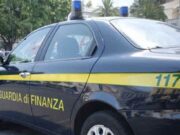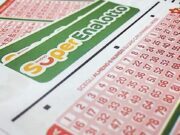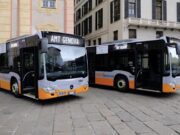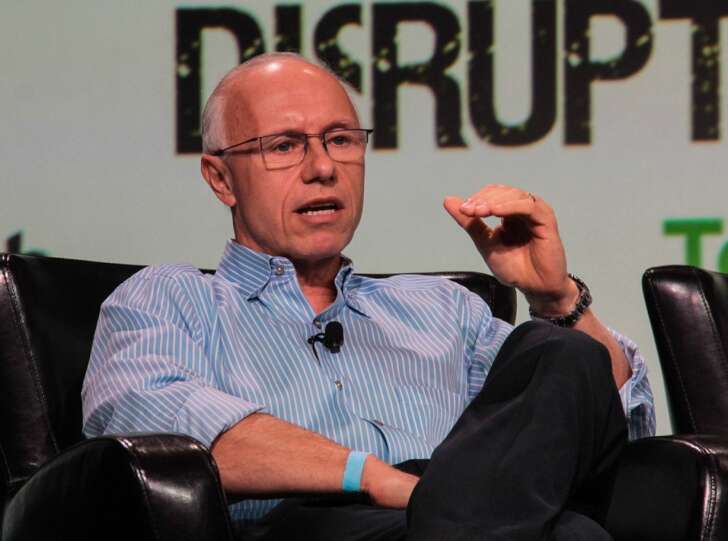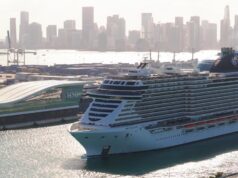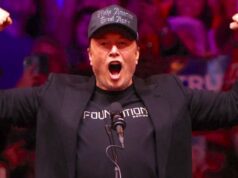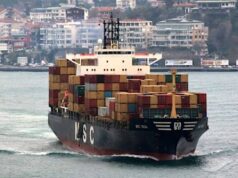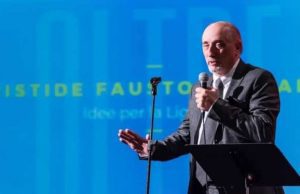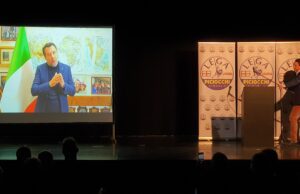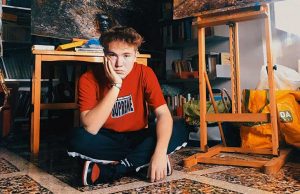Douglas Leone is a Genovese-born US entrepreneur who has become managing partner of Sequoia Capital. Sequoia Capital is a venture capital firm based in Menlo Park, California that focuses primarily on the technology industry. Their name is linked to the successes of Apple, Oracle, Google, YouTube, Yahoo, etc. Forbes stated that Doug Leone’s wealth, in 2020 was $4.4 billion.
How Douglas Leone managed to become a senior partner of Sequoia capital we explain – at least in part – with twelve questions to which the entrepreneur has kindly answered very clearly. We anticipate that Leone has many merits: intelligence, will, dedication to study and then to work, he overcame the difficulties encountered at a young age. Leone has always gone straight to the finish line! Here are the 12 questions we asked him and their answers.
Mr. Douglas Leone, you were born in Genoa but at the age of 11, with your family, you went to the USA. What are the memories that have stayed in your mind?
Douglas Leone: «I have two memories. My memories from Italy were playing football in a small vicolo (Vico Sant’Antonio) near Via Pre’ (one of the toughest streets in Genoa where I grew up, right next to the port) and small in concrete parks and using the underneath of panchine as goals…. We used locations to play that were clearly not meant for such things. I had never played on grass until I left Genova.
In my early days of coming to America, I was living in a small studio apartment with my parents and generally felt out of place. I remember putting a baseball glove on my hand and trying to catch a ball, and trying to throw a ball….who throws a ball? All I had done up to that point is kick a ball».
When you arrived in the United States, what impressed you the most? What differences between Genoa and the US did you immediately find and understand?
Douglas Leone: «The first thing that wildly impressed me was the size of American automobiles. This was 1968. There was a great deal of size difference between a small fiat (500 or 600) and a larger Ford or General Motors sedan. I remember going to a sandwich shop and I was used to eating pane e salame with maybe 4-5 slices of salame. In America, I ordered a sandwich, and it came with ½ kilo of meat, lettuce, tomatoes, mayonnaise. What was this crazy large sandwich who could feed four people? Everything was new and bigger. I no longer had Rai 1 and Rai 2 but I could see many more channels…everything was bigger and more than what I had been used to when I was in Italy».
After a few years in the US, while studying, you were working as a waiter. Working on holidays, when other kids play, it’s a bad situation. Do you think that job was a life lesson? We read in the biography that you said to yourself, “I have to make it. I have to become a businessman”?
Douglas Leone: «I never worked as a waiter. I worked for a small marine instrument company where my father also worked. My initial roles were to clean bathrooms, pick up garbage round the building, remove weeds and so on. I could not be prouder as I was working knowing that I had an earnest job. I remember many successful businesspeople saying they started by cleaning bathrooms, as a start to becoming CEOs… and so as I was cleaning, I thought “thanks for letting me in the business world….and now, nothing will stop me from become the CEO of the company.”
I also liked having some money in my pocket as my parents were not wealthy and money was in short supply in the family. As time went by, I became a delivery man and then, as I developed some technical skills, I would help install marine electronic equipment on boats and ships. I remember working at country clubs by the sea, crawling inside sail boats to install equipment and seeing boys and girls my age playing by the pool in the country club and thinking “I will get you one day”. There was a bit of immature jealousy and resentment that clearly drove me to build a better future».
You did difficult and demanding studies: industrial mechanical engineering at Columbia University! How many hours did you study every day? To pass exams you need study, preparation, intelligence and a lot of will, which of the three qualities has served you best in business life? This is a “private and personal” question: How much did your family and engineer father help you. Let me explain better: the family has been a model to follow?
Douglas Leone: «Again, just to get the facts correctly, I received a Bachelor of Science degree in mechanical engineering from Cornell University, a Master’s in Engineering from Columbia University and a Master’s in Management from MIT. I was a good student in high school but became a terrible student at Cornell. I had had a difficult high school life given my English language barrier (high school kids can be very cruel) and when I got to Cornell, I had a new start. I re-developed social skills which I had lacked during high school.
I was lucky to have graduated. I was a very good student again at Columbia and at MIT. By then, I had secured my place as an American, I had matured, and I had a clear vision of the type of future I wanted. My mother was overwhelmingly attached and involved while my father recognized the benefit of letting me go, make my own mistakes, and develop as a man. Today I am a by-product of my mother’s warmth and my father’s toughness.»
What advice would you give to young Italians starting university? Is it better to choose a scientific or humanistic faculty? Or to pack up and go to foreign universities?
Douglas Leone: «Technology is affecting every market segment. The most valuable companies in the world tend to be tech companies. If you have the aptitude for it, I recommend that you pursue a STEM (science, technology, engineering, math) curriculum. But at the end of the day, you must pursue the feel that interests you, or you will never be any good at your job».
Mr. Leone many young Italians do not believe in themselves, they have little confidence in the future life in Italy. Many factories and companies in Italy and Europe have delocalized their production to China and India. What future do you see for young Italians? What is the best medicine to make these young people recover from passivity? Mr. Leone, are there any solutions? What are the most efficient solutions?
Douglas Leone: «Italy has many problems, not the least of which is the pension overhang and the funding required to support it, the aging population, the low birth rate and so on. I can only really address the tech sector issues. Within this sector it all starts with strong universities teach STEM and more specifically software development courses. The more engineering graduates the better.
The next thing, I would ask the mayors of the cities with strong universities (Genova has a wonderful university and an incredibly talented mayor) to attract engineering and development centers in their cities. Genova for example has terrific weather, affordable housing, and a great quality of life. This would guarantee that young people stay, earn a great living, feel confident about their future, and start families. Many of them would become entrepreneurs and start new companies.
This would get a virtuous cycle to start and a negative cycle to end. Genova has both older line industries (energy) and the potential of new line industry at its doorsteps…these will merge over time and Genova can really benefit from it. Furthermore, I cannot think of a better location than Genova to take advantage of trade and telecommunications trends».
After receiving your Master’s degree in management from the MIT Sloan School of Management in 1988 your career began. First job Hewlett-Packard, then Sun Microsystems and Prime Comput, in 1988 the doors of Sequoia Capital investment company opened. Can we say that in this company you became in 2012 global managing partner? Did you conquer the American dream?
Douglas Leone: «First, the door to Sequoia ‘did not open’. It is fair to say that I pushed it open with all I had. I wrote 80+ letters, I cold-called many venture firms and I went to every interview extremely prepared. I absolutely conquered the American dream…and I am not unique in doing so. America is one of the few countries where you have the possibility through education, hard work, smart decision, and a bit of luck, to build an exciting and fruitful career. I know one thing…I can re-run my life another 1000 times and it will not end up as well professionally…and so luck clearly played a role».
I would like to talk about work and business….What is the first quality of a captain (Ceo) of industry? Is there success without tenacity? Do you like to take risks? Or is it better to think a lot about the choices.
D.L.: «The role of a leader is to understand who the consistencies are for which you are responsible (employees, customers, shareholders, the community at large) and do the very best you can to take care of them. It is not about me. The role of a leader is to be a Steward of the entity for which he/she is responsible. As a leader you need to have a clear vision of where you are heading and then to force the tighten execution possible. Business is war. You want the revenue and profits that someone else has or wants.
People’s careers and well-being are at stake. You need to have a strong culture, which is the invisible hand to get people to do even MORE than what you expect when you are not looking. There are businesses such as technology that seemingly change overnight, and therefore taking risks are a key to survival. There are other businesses where change is rare, and growth is non-existent where risks may not be warranted. You also need to be clear on which decision should be made quickly and which one requires lots of thought».
Here in Genoa, Mayor Marco Bucci has appointed you as one of the 33 ambassadors of Genoa in the world. There is a big difference between Liguria and the rest of Europe. Do we need to change our mentality? The way of thinking and doing. What work activities could work in Liguria? What advice can you give to the managers of this region? Liguria does not have enough space for big industry, what solutions?
D.L.: «The youth is the one that can affect change. I would love to see Google, Facebook, Apple, or Microsoft to open an engineering center in Genova. We have a large enough university to attract them. I have told this to our wonderful Mayor Bucci. Liguria has plenty of space. I have also mentioned this to Mr. Strozzi, the new Consulate in San Francisco».
In Italy, as in other parts of the world, the cost of energy is increasing. What are the prospects for the future?
D.L.: «We better get a lot more efficient and get the amount fossil fuels and renewable energy right, as we generally increase energy efficiency throughout our economy. We will absolutely need more energy as we grow and we cannot let go of fossil fuels overnight, but we need to invest in the cleaner energy of tomorrow».
To conclude our interview we can say that many Genoeses and Ligurians have emigrated from the USA for example: Amadeo Peter Giannini founder of Bank of Italy, which later became Bank on America, his family were born in Favale Malvaro in the hills of Genoa. Frank Sinatra’s mother, Natalina ‘Dolly’ Garaventa, was born in Lumarzo in the hills of Genoa. Doug Leone was born in Genoa and then went to the USA, where he worked hard and was successful in business.
Why did all these people manage to have a good job and succeed in business? What does the USA have that Italy doesn’t have?
D.L.: «Opportunity. Many of Italy’s youth, in all fields, is leaving Italy because of the lack of opportunity. It is difficult to have opportunities without a growing GDP and growing markets. Italy’s GDP now is lower than what it was in 2005. That’s why the youth is living at home or running away. You can dream in America… and it is a lot more difficult to do so in Italy».
I read that you come to Liguria every year to Genoa and Santa Margherita… Do you have any nostalgia for Italy? Is Santa Margherita a nice place to spend the vacations?
D.L.: «I love coming to Genova and I love staying in Santa Margherita. Genova is going through a re-birth thanks to the smart policies of the best Mayor in Italy. The weather is fantastic, the scenario is gorgeous, the focaccia is to die for, the pesto is heavenly, and the people are friendly. We have four children and seven grandchildren near us in San Francisco and so I limit the time I spend away from home. Nevertheless, I always make time to come home to Genova and I stay in Santa Margherita, a place which everyone should visit». Antonio Bovetti abov50@yahoo.it



